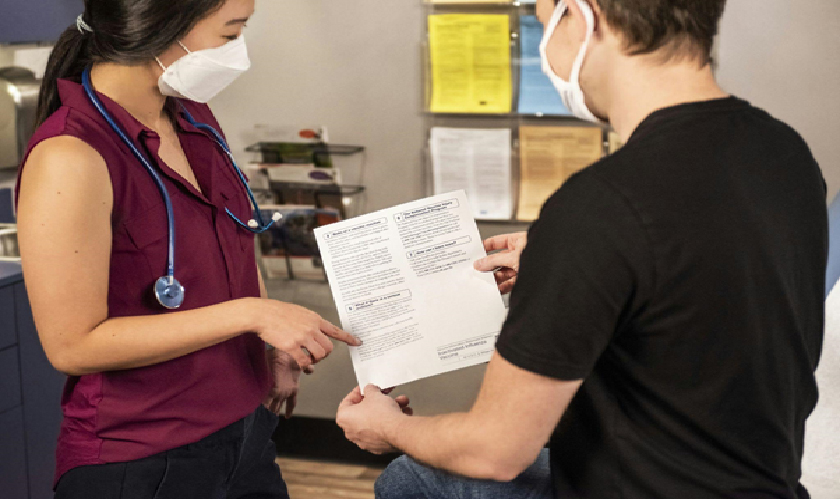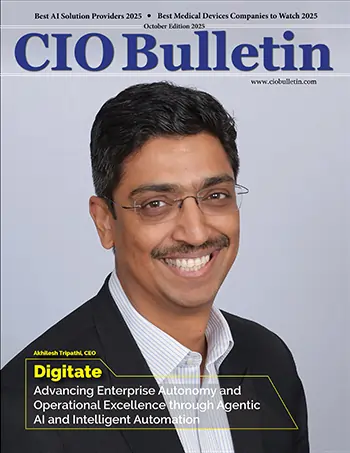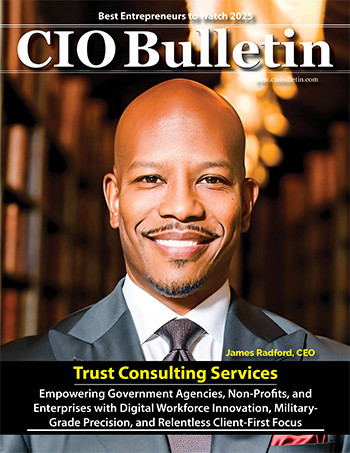Home Industry Healthcare Avoid the Most Common Mistakes...
Healthcare

CIO Bulletin
04 August, 2025
Working in the healthcare industry requires more than clinical expertise. Healthcare professionals must navigate various responsibilities, from providing quality patient care to maintaining compliance. Even the most experienced professionals can make common yet costly mistakes with their different duties. Knowing what to avoid is essential, and we cover that in this guide.
Clear communication is critical in healthcare delivery. Still, miscommunication remains one of the most frequent issues in healthcare settings, and this causes misunderstandings, procedural errors, and even medical negligence. If there’s poor communication between healthcare providers and patients, it can slow down their care.
To avoid making these mistakes, use plain language with patients to ensure they understand. Implement structured communication tools like SBAR (Situation, Background, Assessment, Recommendation) during clinical handoffs. Professionals should maintain open lines of communication among all departments with secure, HIPAA-compliant platforms.
An essential aspect of a healthcare practice is the revenue, and one feature that is constantly overlooked or performed inaccurately is payment posting. This involves recording payments into medical billing software, whether from patient payments or other sources like Explanation of Benefits or Electronic Remittance Advice. When it’s not done correctly, payment posting errors can lead to financial discrepancies, delayed revenue recognition, and unresolved claims.
Missing or misallocating a payment in a healthcare center can cause a domino effect, affecting the patient, the insurance company, and the medical practice. To avoid this, professionals should ensure that all staff are adequately trained in payment posting. Also, regular audits should be conducted to catch posting errors early, and automated billing software that supports ERA integration and reconciliation should be used. There should be a workflow for tracking down and resolving payment discrepancies.

Healthcare is one of the most heavily regulated industries because it deals with human life. Regulations change frequently, so one of the biggest mistakes a healthcare professional can make is not staying updated with the latest changes. This can lead to non-compliance, which causes fines, litigation, or loss of licensure.
These regulations include HIPAA, Medicare, and Medicaid rules, private insurance policies, coding standards like CPT or ICD codes, and billing requirements. To prevent these mistakes, attend regular compliance training and industry webinars. Also, subscribe to newsletters from medical professional organizations. Healthcare centers should appoint a compliance officer to oversee regulatory updates and integrate billing software that will automatically update with the coding and regulatory changes.
Incomplete or inaccurate medical documentation is a common mistake that can affect different patients. It also negatively impacts insurance reimbursement and legal cases. Whether forgetting to record a procedure, omitting patient history, or inputting the wrong data, healthcare professionals can make diverse mistakes. In billing, for instance, incorrect documentation can cause claim denials or audits.
Healthcare professionals should focus on accurate, thorough, and timely documentation. First, they should adopt electronic health record systems efficiently. They should also create standardized documentation templates for consistency and train staff regularly on the best practices for recording notes.
Patient satisfaction is more important than you might know, but healthcare professionals usually overlook this. They typically focus only on clinical outcomes. However, for patients to be loyal and comply with treatment plans, other factors like waiting times, bedside manner, clear communication, and seamless billing are important.
Failing to engage patients or address their concerns causes poor outcomes and loss of trust. To avoid this, healthcare professionals should prioritize empathy when interacting with patients. They should also constantly follow up with patients with phone calls or portals to stay connected and get feedback.

Data breaches are common in this digital age, so it’s important to maintain the privacy and security of patient data. Many professionals only focus on the basic protocols but to don’t realize that HIPAA compliance requires constant vigilance. Data breaches can happen because of unsecured networks, improper handling of medical records, or just normal human error.
Medical centers need to use encrypted and secure EHR systems. They should also limit data access to authorized personnel only and provide ongoing HIPAA and cybersecurity training for all staff. Whenever there are data breaches or violations, a response plan should be in place.
Claim denials can cost healthcare providers significant revenue if they’re not managed effectively. Many practices lose money because they don’t follow up on denied or underpaid claims. Some healthcare providers might submit claims with incorrect coding, missing information, or inconsistent documentation. Every denied claim means that the practice has missed revenue.
Establish a dedicated team for claims submission and denial management to prevent this, or hire a third-party billing company. Also, a reliable system can be implemented that can track and appeal claims, and tools can be used to identify causes of denials and correct them.
Being a healthcare professional isn’t only about medical knowledge but also about having attention to detail, complying with regulations, communication skills, and administrative accuracy. It’s essential to avoid common mistakes, such as payment posting errors and communication gaps, which benefit the care provider and the patient.
Meta Description: What are some common mistakes that healthcare professionals make? Find out how to prevent them in a medical practice!
Working in the healthcare industry requires more than clinical expertise. Healthcare professionals must navigate various responsibilities, from providing quality patient care to maintaining compliance. Even the most experienced professionals can make common yet costly mistakes with their different duties. Knowing what to avoid is essential, and we cover that in this guide.
Clear communication is critical in healthcare delivery. Still, miscommunication remains one of the most frequent issues in healthcare settings, and this causes misunderstandings, procedural errors, and even medical negligence. If there’s poor communication between healthcare providers and patients, it can slow down their care.
To avoid making these mistakes, use plain language with patients to ensure they understand. Implement structured communication tools like SBAR (Situation, Background, Assessment, Recommendation) during clinical handoffs. Professionals should maintain open lines of communication among all departments with secure, HIPAA-compliant platforms.
An essential aspect of a healthcare practice is the revenue, and one feature that is constantly overlooked or performed inaccurately is payment posting. This involves recording payments into medical billing software, whether from patient payments or other sources like Explanation of Benefits or Electronic Remittance Advice. When it’s not done correctly, payment posting errors can lead to financial discrepancies, delayed revenue recognition, and unresolved claims.
Missing or misallocating a payment in a healthcare center can cause a domino effect, affecting the patient, the insurance company, and the medical practice. To avoid this, professionals should ensure that all staff are adequately trained in payment posting. Also, regular audits should be conducted to catch posting errors early, and automated billing software that supports ERA integration and reconciliation should be used. There should be a workflow for tracking down and resolving payment discrepancies.
Healthcare is one of the most heavily regulated industries because it deals with human life. Regulations change frequently, so one of the biggest mistakes a healthcare professional can make is not staying updated with the latest changes. This can lead to non-compliance, which causes fines, litigation, or loss of licensure.
These regulations include HIPAA, Medicare, and Medicaid rules, private insurance policies, coding standards like CPT or ICD codes, and billing requirements. To prevent these mistakes, attend regular compliance training and industry webinars. Also, subscribe to newsletters from medical professional organizations. Healthcare centers should appoint a compliance officer to oversee regulatory updates and integrate billing software that will automatically update with the coding and regulatory changes.
Incomplete or inaccurate medical documentation is a common mistake that can affect different patients. It also negatively impacts insurance reimbursement and legal cases. Whether forgetting to record a procedure, omitting patient history, or inputting the wrong data, healthcare professionals can make diverse mistakes. In billing, for instance, incorrect documentation can cause claim denials or audits.
Healthcare professionals should focus on accurate, thorough, and timely documentation. First, they should adopt electronic health record systems efficiently. They should also create standardized documentation templates for consistency and train staff regularly on the best practices for recording notes.
Patient satisfaction is more important than you might know, but healthcare professionals usually overlook this. They typically focus only on clinical outcomes. However, for patients to be loyal and comply with treatment plans, other factors like waiting times, bedside manner, clear communication, and seamless billing are important.
Failing to engage patients or address their concerns causes poor outcomes and loss of trust. To avoid this, healthcare professionals should prioritize empathy when interacting with patients. They should also constantly follow up with patients with phone calls or portals to stay connected and get feedback.
Data breaches are common in this digital age, so it’s important to maintain the privacy and security of patient data. Many professionals only focus on the basic protocols but to don’t realize that HIPAA compliance requires constant vigilance. Data breaches can happen because of unsecured networks, improper handling of medical records, or just normal human error.
Medical centers need to use encrypted and secure EHR systems. They should also limit data access to authorized personnel only and provide ongoing HIPAA and cybersecurity training for all staff. Whenever there are data breaches or violations, a response plan should be in place.
Claim denials can cost healthcare providers significant revenue if they’re not managed effectively. Many practices lose money because they don’t follow up on denied or underpaid claims. Some healthcare providers might submit claims with incorrect coding, missing information, or inconsistent documentation. Every denied claim means that the practice has missed revenue.
Establish a dedicated team for claims submission and denial management to prevent this, or hire a third-party billing company. Also, a reliable system can be implemented that can track and appeal claims, and tools can be used to identify causes of denials and correct them.
Being a healthcare professional isn’t only about medical knowledge but also about having attention to detail, complying with regulations, communication skills, and administrative accuracy. It’s essential to avoid common mistakes, such as payment posting errors and communication gaps, which benefit the care provider and the patient.







